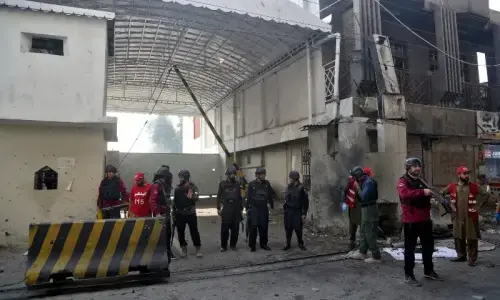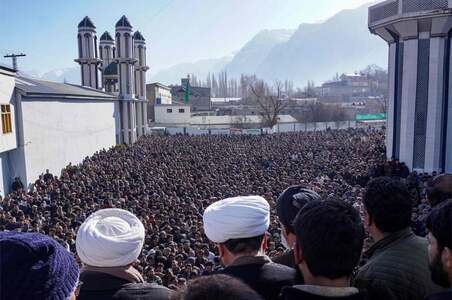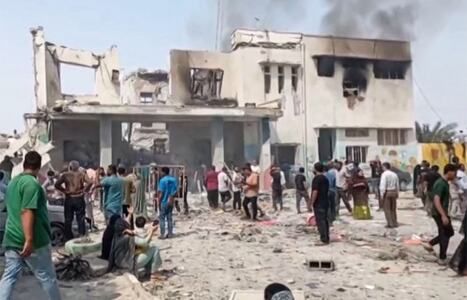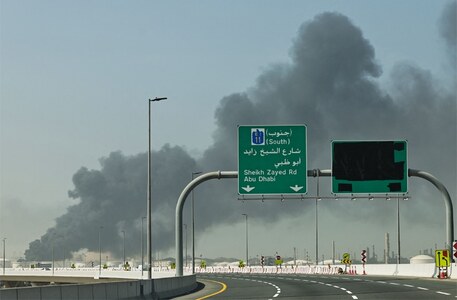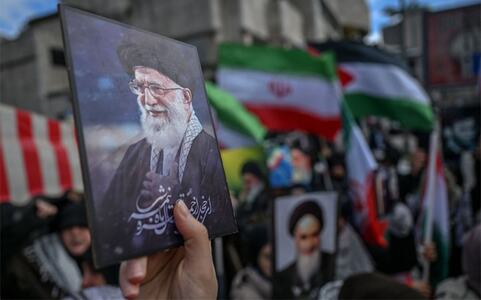IF the reaction of the Indian media, particularly the TV channels of the hypernationalist bent, was any indication then the Kabul ‘Serena swagger’ was worth it as it showed that Pakistan was now feeling content its western border was secure and no more a headache.
For a decade and a half, Pakistani security officials have believed that the terrorist attacks all over the country and particularly in the erstwhile tribal areas were being orchestrated by the Indian intelligence agency RAW in concert with the Afghan security service NDS, notwithstanding the denials by both.
This view was rooted in the belief that the Kabul regime blamed all its security challenges and terrorism it faced on Islamabad’s perceived support to the Taliban. Ergo, it tried to pay back in the same coin, with India jumping in to help.
Security officials in Islamabad-Rawalpindi believed that New Delhi not only saw it as a payback for its troubles in Kashmir but also to keep a chunk of Pakistan’s security forces engaged on their western borders and benefit from this deployment of forces away from facing India.
They need international cooperation, even if recognition is not on the cards as we speak.
Thus, when President Ashraf Ghani fled the country and his forces collapsed and when Pakistan’s ostensible allies, the Taliban, took control of the capital with some of the leaders and fighters of the Haqqani Network establishing a high-profile presence in Kabul, it was bound to cause concern in Delhi.
The Taliban control of Afghanistan was bad enough but that the Haqqani Network, described by former US chairman of the joint chiefs, Adm Mike Mullen, as “the veritable arm of the ISI”, was so prominent in the new dispensation must have been devastating for hardliners across the eastern border.
So, when the Pakistani ISI chief Lt-Gen Faiz Hameed was filmed having a ‘welcome qahwa (green tea)’ in the lobby of the Kabul Serena Hotel, a little after flying into the Afghan capital for consultations on Sept 4, by veteran journalist Lindsey Hilsum of UK’s Channel 4 News, his swagger created a storm in the Indian media.
That media encounter did not appear planned. But it triggered some of the most bizarrely fabricated reporting on several Indian TV channels where some went to the extent of using a sequence from a TV wargame and claimed it was Panjshiri resistance fighters targeting with anti-aircraft fire a ‘Pakistani drone’ circling their positions to attack.
Factcheck: Picture claimed to be of PAF jet shot down in Panjshir is actually from US
Several commentators went to town with allegations of how the ISI chief was directing the assault on Panjshir valley. A retired general of the Indian army took to the media to name fictional Pakistani commandos taking part in that attack, while even making the laughable accusation that PAF jets had been pressed into service.
If the overwhelming concern for the safety and liberty of the Afghans opposed to the Taliban, particularly women, was not the foremost on my mind I could have savoured the hypernationalists’ misery across the border for a few more days.
If I am honest this breed is no different wherever you come across it, deploying outright lies to support its vile agenda and gloating at any impact or response its lies elicit. Concern for facts, the truth is secondary and it has no humanity. We have our own share of this breed.
When talking of the Taliban, I carefully chose the word ‘ostensible’ allies of Pakistan. Hostile to Pakistan they are not, for now at least, as they need a lifeline in a very difficult situation on a dramatic and sudden ascent to power. The Afghan economy is in a shambles and multitudes face hunger if food aid is not quickly forthcoming.
They need international cooperation, even if recognition is not on the cards as we speak. But they will be hamstrung by their dogmatic ideology in their ability to make many concessions. Pakistan may have to carry the burden of global expectations of moderating the Taliban.
Read: US sees critical Pakistan role for inclusive govt in Afghanistan
The Kabul visit and the swagger witnessed during that could fast fade into distant memory if the ideologically adamant Taliban are not prepared to move from their rigid position on an ‘inclusive’ government and rights of women. Some of their initial positive vibes are gone already.
Protest demonstrations by women have been so tightly regulated that it is tantamount to a ban and journalists covering the last such protest in the Afghan capital were taken away and brutally beaten and tortured. More ominously, they were told they were lucky not to have been beheaded.
Also, if the TTP attacks on Pakistani soil continue and the Afghan Taliban can’t or won’t deliver on their promised ‘our soil will not be used against attacks on any other country’, what options will Islamabad have to hold Kabul to its word?
More knowledgeable commentators may argue that such fears are unfounded as those responsible for the country’s security are cognisant of every eventuality and have a dynamic, flexible plan in place to deal with such challenges.
Given the violent and bloody experience of the past decade and a half, all I’d say is that the proof of the pudding is in the eating. Hope and pray our civilians and young uniformed defenders are not called upon to offer more blood sacrifices.
There are multiple scenarios that remain a cause for concern. The foremost being the repercussions for Pakistan of an unstable Afghanistan becoming yet another playground for a new Great Game with the US determined to check China’s rise as a global power and challenge of the former’s pre-eminence in a unipolar world. Of course, that is a scenario we can’t control.
What can be done is to be prepared for grave, new challenges born out of what seems like a triumph good enough to produce a swagger. A start would be to bring a divided country together through a process of reconciliation and evolving a consensus on critical issues.
The writer is a former editor of Dawn.
Published in Dawn, September 12th, 2021















